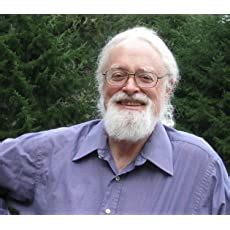A Quote by Vilfredo Pareto
The economic and social theories used by those who take part in the social struggle ought to be judged not by their objective value but primarily for their effectiveness in arousing emotions. The scientific refutation of them which can be made is useless, however correct it may be objectively.
Related Quotes
Science fiction - and the correct shortcut is 'sf' - uses actual scientific facts or theories for the source ideas or framework of the story. It has some scientific content, however speculative. If it breaks a law of physics, it knows it's doing so and follows up the consequences. If it invents a society of aliens, it does so with some respect for and knowledge of the social sciences and what you might call social probabilities. And some of it is literarily self-aware enough to treat its metaphors as metaphors.
I don't think one can accurately measure the historical effectiveness of a poem; but one does know, of course, that books influence individuals; and individuals, although they are part of large economic and social processes, influence history. Every mass is after all made up of millions of individuals.
In restating this basic Christian doctrine, Benedict argues that it is not only for Christians alone. Others may not share the Christian faith in God, but the Christian proclamation that hope comes from within the person- in the realm of faith and conscience - is for them too. It offers an important protection against stifling and occasionally brutal social systems built on false hopes that come from outside the person, founded on political idealogies, economic models and social theories.
To overcome our biological limitations as individuals, we have co-evolved collective systems and capacities - cultural, social, economic, political, scientific, media, educational, public relations, etc. But the flaw in all that is that we have designed them primarily for comfort, profit, power, control, and entertainment rather than for collective intelligence, sanity, and wisdom.
Anarchism asserts the possibility of an organization without discipline, fear, or punishment, and without the pressure of poverty: a new social organism which will make an end to the terrible struggle for the means of existence, --the savage struggle which undermines the finest qualities in man, and ever widens the social abyss. In short, Anarchism strives towards a social organization which will establish well-being for all.
It is my feeling that as we grow older we should become not less radical but more so. I do not, of course, mean this in any political-party sense, but rather in a willingness to struggle for those things in which we passionately believe. Social activism and the struggle for social justice are often thought of as the natural activities of the young but not of the middle-aged or the elderly. In fact, I don't think this was ever true.
For those in whom a local mythology still works, there is an experience both of accord with the social order, and of harmony with the universe. For those, however, in whom the authorized signs no longer work-or, if working, produce deviant effects-there follows inevitably a sense both of dissociation from the local social nexus and of quest, within and without, for life, which the brain will take to be for 'meaning'.
Photography, precisely because it can only be produced in the present and because it is based on what exists objectively before the camera, takes its place as the most satisfactory medium for registering objective life in all its aspects, and from this comes its documental value. If to this is added sensibility and understanding and, above all, a clear orientation as to the place it should have in the field of historical development, I believe that the result is something worthy of a place in social production, to which we should all contribute.





































